The secret at dawn
The breeze at dawn has secrets to tell you.
Don’t go back to sleep.
People are going back and forth across the doorsill
Where two worlds touch.
The door is round and open.
Don’t go back to sleep.
— Rumi
There’s a moment just before everything changes.
You can’t always see it from the inside, but you can feel it—like a shimmer in the air, a crackle under the skin, a tightening of time.
Sometimes it’s quiet.
A conversation that lands too deeply. A thought you can’t unthink. A truth you’ve carried for years but only now have the courage to speak aloud.
Sometimes it’s loud.
A rupture. A relocation. A relationship ending. A job you no longer recognise. A sudden stillness where the future used to be.
We call these threshold moments.
You may not realise you’re in one until something in you has already crossed over.
You may not realise you’re in a threshold until something in you has already crossed.
And yet, if you pay attention, there’s a kind of dawn-light that gathers just before these moments arrive. You feel yourself standing at the edge of something. Something old is loosening its grip. Something not-yet-known is whispering through the cracks.
If this feels familiar, you’re not alone. You might be standing in the same place many of us have found ourselves—a place between stories. Between selves. Between the world that was, and the one that might be.
The door is round and open.
What happens next is up to you.
What is a threshold, really?
Let’s begin, as we often do, with the root of the word.
The word threshold descends from threscwald, Old English for the strip of wood or stone at the bottom of a doorway—the part you step over. But it shares lineage, too, with thresh—to beat, to winnow, to separate the grain from the husk.
It’s not just a crossing. It’s a reckoning. A space where what has been hidden is shaken loose and brought into the light.


The word “threshold” shares roots with both the physical strip of wood at a doorway (left) and the act of threshing grain—separating husk from seed (right). In both senses, it marks a place of transition and revelation.
In myth and folklore, thresholds appear as sacred spaces of transformation—doorways to the underworld, portals between realms, enchanted gateways that only open when you’re ready (or sometimes before you are). They are places of truth-telling, initiation, and irreversible change.
Thresholds are where what was hidden is shaken loose and brought into the light.
In life, the thresholds are just as real. They might take the form of a decision, an encounter, a heartbreak, a moment of clarity that rearranges everything. They are often subtle and slow until they are sudden and final.
A threshold is not the same as a choice, though choices often happen there.
It is a space of becoming—not quite here, not quite there, but charged with possibility. It marks the line between who you’ve been and who you’re about to become.
And the strange thing is: we often don’t see thresholds for what they are until long after we’ve crossed them.
The shapes thresholds take
Some thresholds are loud. Others slip by almost unnoticed, only to echo back later with the uncanny ring of hindsight.
We walk through some willingly. Others drag us across, clawing at the doorframe. Some we sense but never quite enter. And some are so subtle that we only recognise them long after we’ve passed through—moments that didn’t seem decisive at the time, but in retrospect marked the turning.
They don’t all feel the same, but they often share a strange inner quality.
Time distorts. Things start crackling.
You feel both pulled and pushed.
Part of you resists, even as another part already knows.
Narrative coach David Drake describes this sensation as an urgent calm—a paradoxical state where you’re coiled and clear all at once.
Time distorts. Things crackle. Part of you resists, even as another part already knows.
You’re ready to act, but not out of panic. You’re not running away. You’re responding to a call that’s been quietly building for some time.
Carl Jung, who literally carved an inscription over the doorway of his home in Switzerland—“Called or not, the gods will be present”—understood what many mythologies do: thresholds are sacred. Even when they seem orderly or easy to comprehend, they are nevertheless charged with possibility, mystery, and the presence of something beyond our control.

Even standing near a threshold takes energy. They are places of power. Something in you senses that if you go through, you won’t be the same.
To stand at the edge without crossing—yet still holding a posture of readiness, honesty, and curiosity—that too is its own kind of work.
Over time, I’ve come to notice a few recurring shapes that threshold moments tend to take. You may recognise some of them.
The Realisation That Comes Later
A conversation that didn’t feel important at the time.
A moment you now trace everything back to.
“That was it. That’s when it changed.”
This is the retrospective threshold. You didn’t plan to cross it. There was no fanfare. No choice that felt especially bold. But later—sometimes years later—you realise that moment rearranged you.
You didn’t know you were done with that place, that person, that version of yourself. But something quietly unhooked. And you never quite went back.
These thresholds don’t announce themselves. They leave fragments. A delayed clarity. A rewatching of your own story, where suddenly the plot point reveals itself.

The Choice to Awaken
Neo chooses the red pill.
The world you thought was real begins to crack.
Knowledge is a risk. Awakening is irreversible.
This is the intentional threshold. You see it coming. You weigh the risk. You feel the fear. And still—you choose.
Maybe it’s leaving a job or relationship, saying yes to something uncertain, or finally trusting the quiet inner tug that says this way. These thresholds require resolve. Sometimes compromise. Always courage.
They are the moments where we choose to live forward, even if we don’t have it all figured out.

The Interrupted Story
Alice falls down the rabbit hole.
No preparation. No permission. Just the plunge.
The rules no longer apply.
This is the imposed threshold. Some crossings arrive uninvited—a rupture, a sudden layoff, a diagnosis, a betrayal. A border that suddenly closes (remember Covid?) A system that no longer holds.
These ones tend to sting. But they’re also clarifying. They show you what you care about, what you’re done tolerating, and what you’re becoming—whether you asked for it or not.
On the other side, the world is weirder—but maybe more honest, too.

The Gift of the Stranger
A riddle from the Sphinx. A tip from a fellow traveller.
A well-placed word from someone who sees something you don’t.
Thresholds are often marked by an encounter—sometimes no more than a sentence, a book suggestion, a passing comment that arrives with uncanny precision. You meet someone—or something—that sees you before you’re quite ready to be seen.
An unexpected mentor. A line in a film. A moment where the right words land in the right place, and everything tilts.
These crossings may not push you through the doorway, but they offer direction. They remind you that you’re not imagining it. That change really is stirring. It’s often enough.

Thresholds wear many faces. But beneath them all is the same quiet invitation:
Will you carry forward what you’ve always been… or allow something new to emerge?
The guardians at the gate
Every meaningful threshold has its guardians. These aren’t just mythological figures like the Sphinx, the ferryman, or the wise old guide—they’re also the forces, faces, and inner voices that show up when something in us is about to change.
Some offer riddles. Some bring gifts. Some frustrate us so thoroughly that we change out of sheer defiance.
But they all share one purpose: to test our readiness.
Joseph Campbell called them threshold guardians—figures who delay the hero just long enough to make the crossing matter. They might seem like obstacles, but their real function is clarification.
In life, threshold guardians appear in many forms:
The Mentor with the Cryptic Smile
Yoda in exile. Morpheus with the pills. The guide who gives you tools, not answers.
These guardians don’t tell you what to do. They ask better questions. They trust your readiness before you do. They may offer just enough guidance to get you moving—but never enough to let you skip the part where you grow.
The Adversary Who Forces a Reckoning
Snape for Harry. That job that broke you open. That moment you finally said no.
Some guardians look like enemies. They provoke your boundaries. They expose your compromises. They show you—painfully—what you will no longer tolerate. And in doing so, they propel you into a different way of being.
The Chance Encounter That Reorients You
A stranger on a plane. A line in a book. A song you didn’t mean to hear.
Some crossings are marked by brief, uncanny nudges that arrive like whispers in the corridor. A passing comment that lingers. A mirror held up by someone who barely knows you.
These strange messengers don’t block or bless your passage. They simply appear at the right moment and say: Look there. And somehow, everything tilts.
The Voice Within
The doubt that won’t quiet. The desire that won’t fade. The part of you that already knows.
Not all guardians are external. Sometimes it’s your own intuition playing hard to get. Or your fear, trying to keep you safe. Or a deep knowing, disguised as ambivalence, waiting for you to stop pretending you don’t know what you know.

Whether friend or foe, stranger or self, threshold guardians help make the crossing conscious. They remind us that transformation is not just about where we’re going—but how we meet the moment.
To stand at a threshold is to reckon with the figures who gather there—within and without. Some will open the door. Others will block it.
But all of them ask: Are you really ready for what’s on the other side?
And sometimes—quietly, unknowingly—we become that guardian for someone else. A question you asked. A comment you forgot you made. A moment where you simply saw someone, and in doing so, held the door open.
Why thresholds matter now
We are living in a time of cascading thresholds.
Institutions are wobbling. Identities are shifting. What once felt stable now feels… provisional. The stories we were told to follow—career, citizenship, adulthood, success—are fraying at the edges. Or they’ve already collapsed, quietly, without anyone officially saying so.
And still, we show up. We keep trying. We sense that something else is possible, even if we don’t have the words for it yet.
This is threshold territory.
It doesn’t always look dramatic from the outside. Sometimes it looks like burnout. Or restlessness. Or a deep desire to quit something without knowing what comes next.
It can also look like curiosity. A hunger to reclaim what was lost. A sudden pull toward a creative project, a different kind of relationship, a slower way of living.
Whatever shape it takes, this is the texture of transformation—personal and cultural.
We are living in a time of cascading thresholds.
And here’s the thing: most of our systems aren’t built to support threshold moments. They’re built for maintenance, repetition, performance. They prefer clarity to ambiguity, output to becoming.
But thresholds are messy. They don’t produce tidy answers. They ask for patience, presence, and practical wisdom. They ask us to move at the speed of meaning, not efficiency.
And they are also sacred. Because they’re the places where new ways of being start to form.
That’s why threshold work matters now—not as a luxury or an indulgence, but as a practice of survival and re-imagining. It’s how we learn to live when the maps run out.
A home for threshold work
Grokkist is a place for people who are in between stories.
People standing at the edge of something—sometimes quietly, sometimes with urgency—sensing that the shape of their life is shifting, even if they don’t know yet into what.
Grokkist is a place for people who are in between stories.
Some arrive here in the midst of burnout, transition, or reinvention. Others come with a question they can’t shake, or a project that won’t leave them alone. Some are gathering courage to leave the job, the role, the story that no longer fits. Others are already halfway across, looking for companions who speak the language of becoming.
Whatever brings you here, Grokkist exists for that moment. The one where your past no longer quite defines you—and your future hasn’t yet taken form.
We don’t offer a single path. What we offer is a kind of ecosystem—built for threshold energy.
If you’re sensing a shift but not sure what to do with it yet, begin with Unlock Your Grok. It’s a short, self-paced journey available to all Grokkist members. You’ll be gently invited to notice what’s stirring, to gather the threads of your story, and to begin honouring what’s already emerging.

If you’re going through a life transition or doing deep identity-level reflection, you might find yourself in Find Your Red Thread—a guided journey designed to help you make sense of the patterns you’ve lived, reclaim your story, and connect with what matters most. It’s not a course in the usual sense. It’s more like a mirror held up in community.
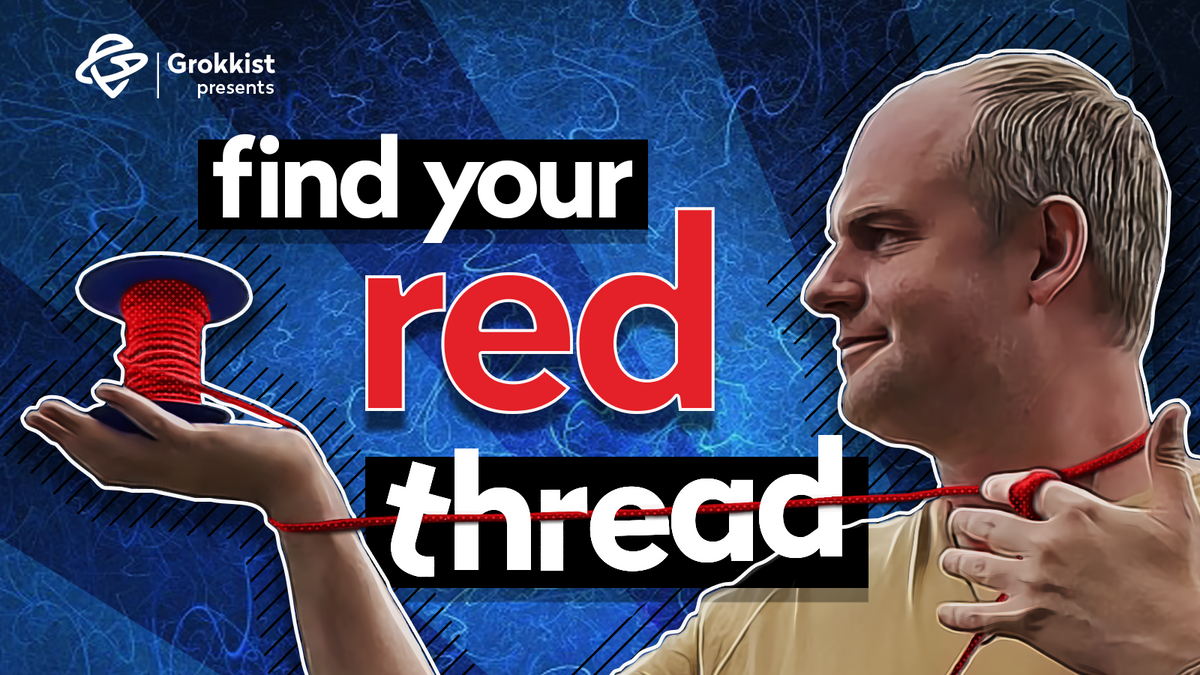
If you’re ready to make something—to shape an idea, practice, or project that reflects your evolving self—explore Grokkist Projects. It’s where we offer practical, collaborative support for what wants to be born next in your life or work. We use an approach called Groksmithing, our signature method for co-creating at the threshold.
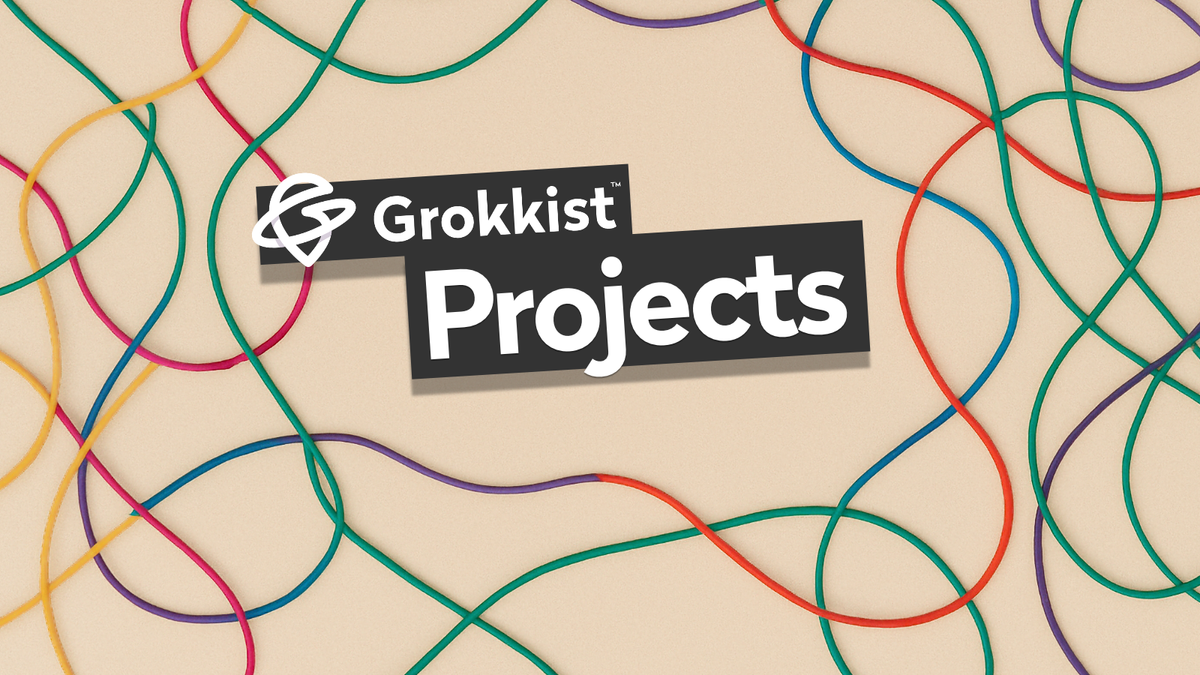
But you don’t have to sign up for anything to be part of Grokkist. We host regular free events where people gather to share ideas, stories, experiments, and laughter. You’ll also find a welcoming community space—playful, curious, and surprisingly deep—where you can hang out, ask big questions, or simply be among others who are living the questions too.
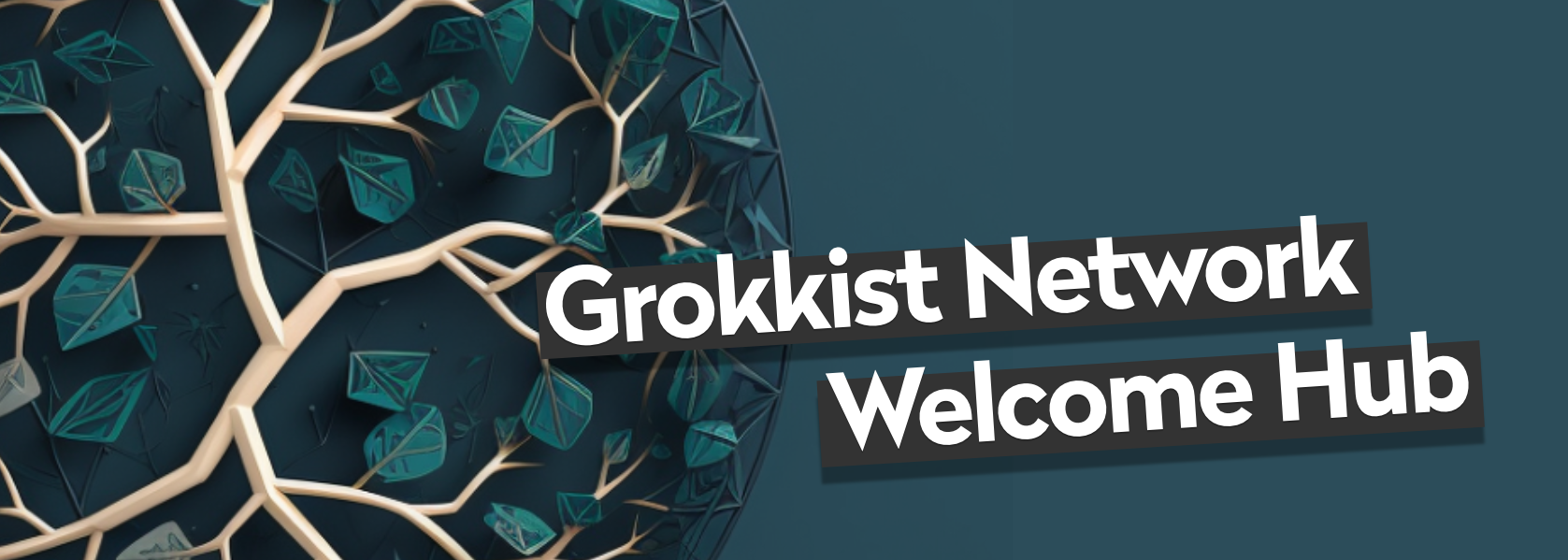
And there’s the Grokkist Press—where our community shares writing, reflections, and provocations that speak to the kind of learning that lights up the soul. It’s a space for threshold thinking in public, and you’re warmly invited to explore.
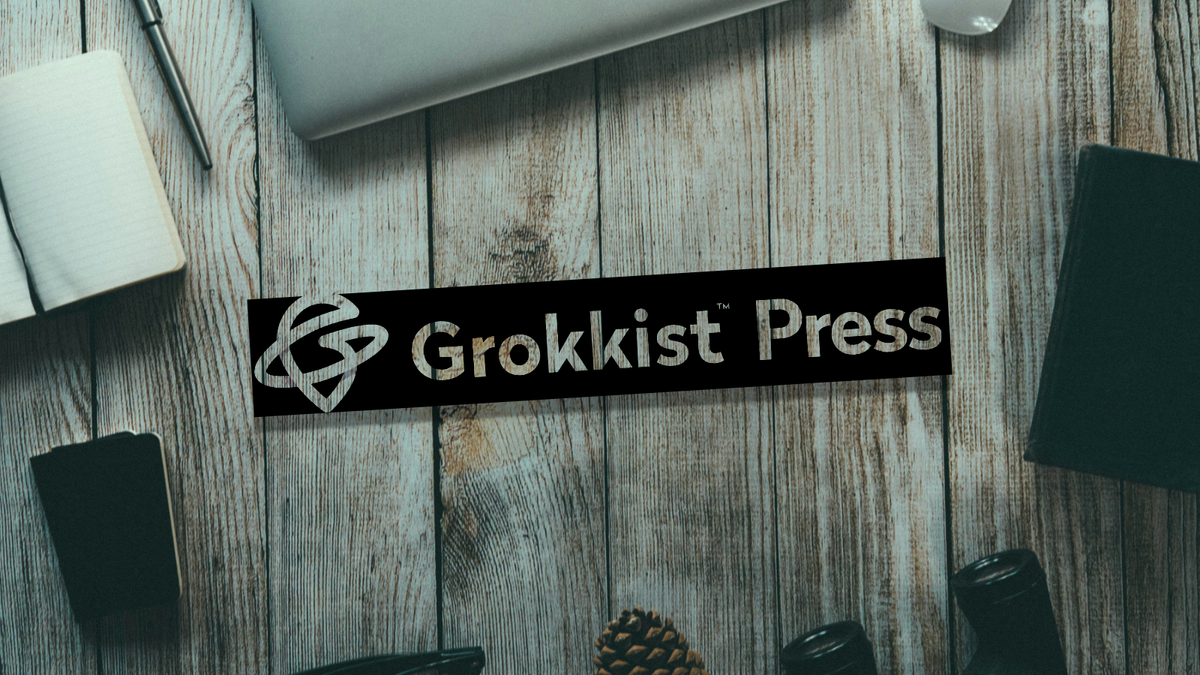
The whole Grokkist ecosystem is designed to meet you in this place—between what was and what’s next. We don’t presume to know what you should do. But we’ve built a space where you can listen to what’s already moving inside you.
You’ll find others here, too—misfits and mirror-holders, curious wanderers and defiant optimists. People who are learning to live forward without needing a pre-approved map. People who see you not as a puzzle to solve, but as someone unfolding.
Sometimes you’ll be the one being mirrored. Other times, you’ll be the mirror.
Either way, this is a place to cross thresholds together.

The invitation
If you feel the crackle, the urgent calm, the sense that something’s shifting beneath the surface—you’re not alone. You’re probably standing at a threshold.
You don’t have to name it yet. You don’t have to walk through it today.
But if you’re looking for a place that understands what it means to be in that space—between before and after, between clarity and becoming—we’d love to meet you there.
You can start by noticing. By remembering. By listening.
And when you’re ready to step through, we’re here.

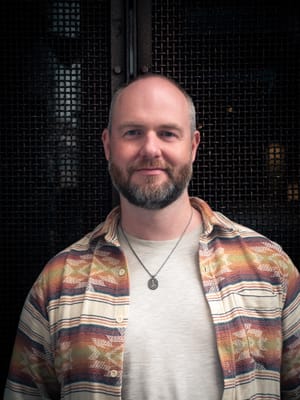

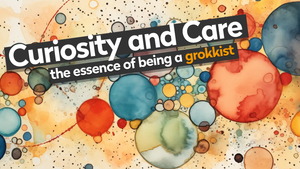









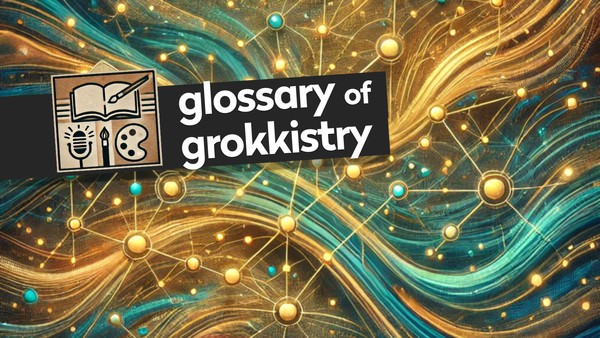
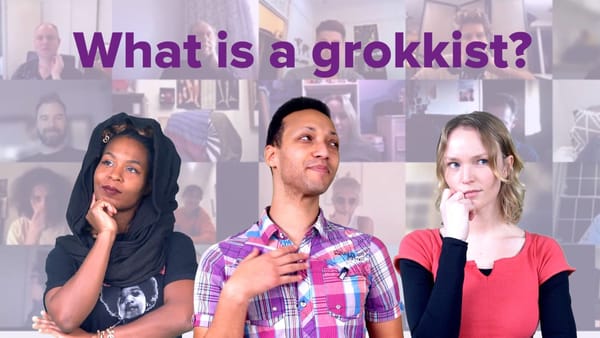
Member discussion